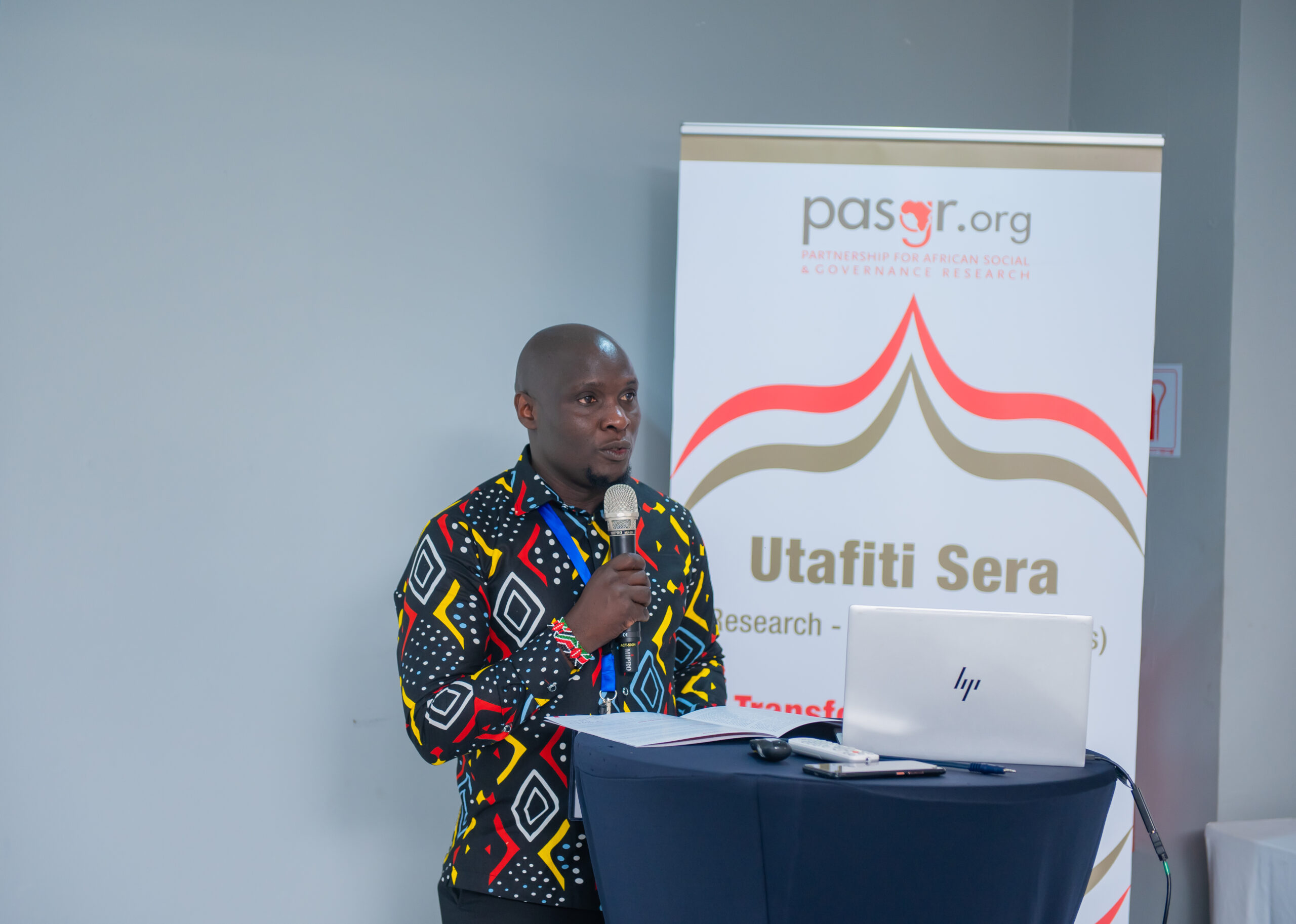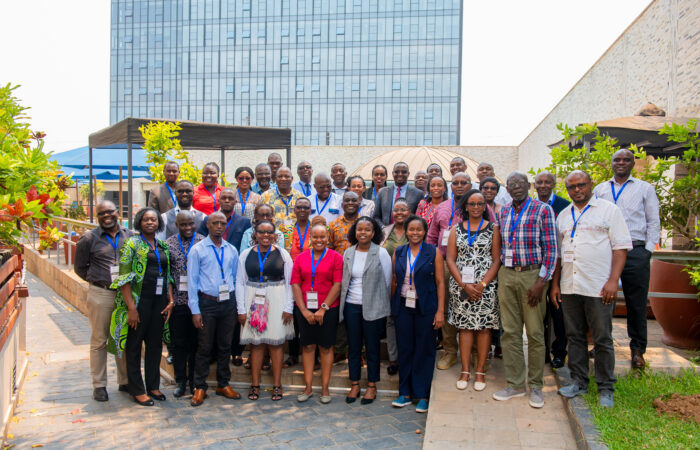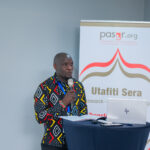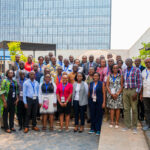The Stakeholders Mapping workshop on Youth Employment Creation in Agriculture and Agro-processing held on 7th December, 2017 was organized by the Centre for African Bio- Entrepreneurship (CABE) in collaboration with Partnership for Social and Governance Research (PASGR). The workshop was the Second Phase of Utafiti Sera1, building on themes covered in Phase namely employment issues in sugar and horticulture industry. The forum invited stakeholders from government ministries working with youth, county representatives in the Ministry of Agriculture, Fisheries and Livestock Development, training and vocational education institutions, development partners, donors, Non-Governmental Organizations, academic institutions, the private sector and youth2 farmers.
Youth employment creation in agriculture and agro-processing is a policy agenda that emerged from policy discussion on employment creation in the sugar and horticulture industries. The two forums were hosted by Utafiti Sera in November 2016 and January 2017 respectively in Nairobi. The two forums prompted the consensus that despite forming a larger percentage of the Kenya’s unemployed population and possessing the potential to spearhead development, youth have been marginalized in discussions on wage (un) employment both at policy and programme levels. It is also recognized that comprehensive data on youth opportunities and challenges is limited despite the endorsement of policies and programmes that promote youth employment by African policy-makers and partners. This therefore necessitates the need to make research evidence more accessible to policy makers and relevant actors to catalyze policy interventions regarding the generation of youth employment opportunities in the agriculture and agro-processing sectors. Stakeholder mapping was the initial step in engaging actors supporting youth in agriculture and agro-processing. The objective of the mapping exercise was to identify strategic actors and contact persons who will act as liaisons in each organization for Utafiti Sera. This initial engagement was also to ensure that evidence data for influencing policy is disseminated accordingly for maximum impact.
The mapping exercise identified six broad categories of actors to engage in Utafiti Sera agenda. These included the public sector, private sector, donors/development partners, research and academia, civil society organizations (CSOs) and media. The specific actors in the broad categories were selected based on their relative importance and influence in the field, strength of linkages, and acceptance of the Utafiti Sera agenda. The Ministry of Public Service Youth and Gender Affairs, Ministry of Agriculture, Livestock and Fisheries, Ministry of Industrialization, Trade and Enterprise Development, national and county governments, youth organizations and religious organizations were singled out as key actors capable of influencing the trajectory of youth employment creation in agriculture and agro-processing.
This report captures the proceedings of the stakeholder meeting. It includes an introduction of participants, opening remarks by PASGR and CABE, overview of stakeholder mapping exercise, reflections on youth employment creation in agriculture in Kenya, Participatory Impact Pathways Analysis (PIPA), a summary of strategic actors and the next steps of action.





